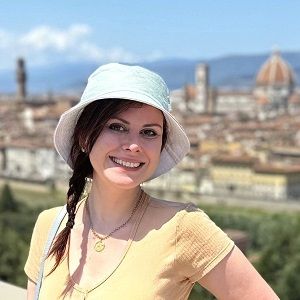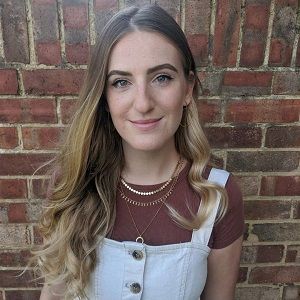Communism Tours in Prague
Prague — formerly part of Czechoslovakia — is widely considered to be one of the most enchanting cities in Europe, with no shortage of striking architecture, religious monuments and terracotta roofs.
However, there is a darker side to the city, which you can explore on a communism tour in Prague.
Prague — formerly part of Czechoslovakia — is widely considered to be one of the most enchanting cities in Europe, with no shortage of striking architecture, religious monuments and terracotta roofs.
However, there is a darker side to the city, which you can explore on a communism tour in Prague.

(0/24) checking Musement...
Prague — formerly part of Czechoslovakia — is widely considered to be one of the most enchanting cities in Europe, with no shortage of striking architecture, religious monuments and terracotta roofs.
However, there is a darker side to the city, which you can explore on a communism tour in Prague.
From fearful propaganda and somber soviet-era buildings to scenes of revolution, these landmarks showcase the trials, and tribulations of Prague’s citizens during this totalitarian reign.
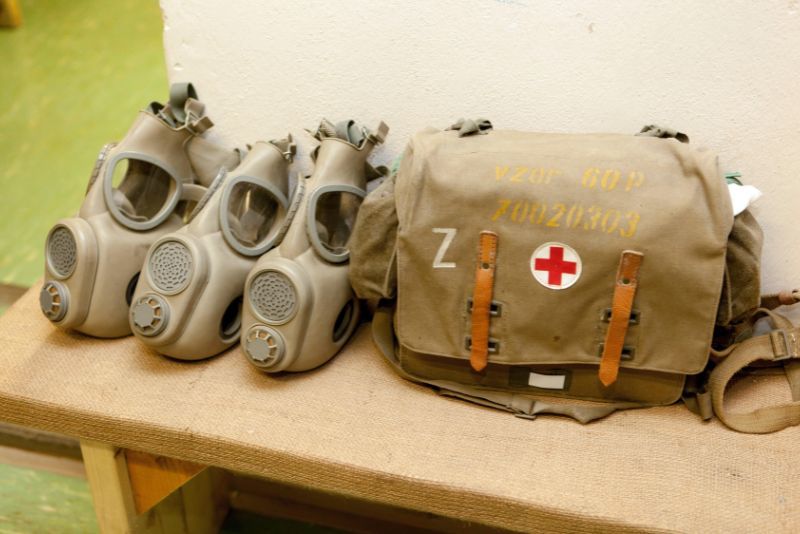
Here's all you need to know about communism Tours, one of the most interesting options for sightseeing tours in Prague.
What are the best communism tours in Prague?
Communism and bunker walking tour in Prague
Discover Prague’s tempestuous past in this communism tour that covers World War II and the Soviet era of former Czechoslovakia.
Itinerary
Begin your tour at one of the most notorious spots in the city — the Powder Tower. This dramatic monument was one of Prague’s original city gates and was used to store gunpowder in the 17th century.
After admiring this 65-meter Gothic structure, you’ll move on to one of the main hubs in the city — Republic Square — where you'll learn about Hitler's interest in invading the Czech Republic for economical gain.
You'll also discover the reasons behind the nation's desire to become independent at the beginning of the 20th century.
Continuing on, you'll see the Old Town Square — Staroměstské náměstí — where the communist party celebrated upon gaining victory after World War II.
Learn about the hardships Czech citizens went through under Joseph Stalin's reign and the secret police that kept freethinkers downtrodden.
Dine on a traditional working-class style at Wenceslas Square before exploring the communist monuments in the surrounding area.
See the location of the 1968 Prague Spring occupation when the Soviet Union invaded Czechoslovakia.
Imagine the crucial moment when the people of Prague rose up in the Velvet Revolution against the communist movement in 1989 at the exact point of their protests.
Before you finish your communism tour in Prague, you'll have the opportunity to squeeze into one of 800 nuclear bunkers built across the city during the Cold War.
Communism and World War II E-bike tour
Cover more ground on an E-bike tour through the “Heart of Europe.”
Itinerary
Mount your comfortable E-bike and navigate the city streets without breaking a sweat. On two wheels, you’ll be able to visit over 30 of Prague’s historic monuments that relate to its communist takeover and World War II.
Standout landmarks include the Victims of Communism memorial, which honors over 380,000 citizens who were imprisoned or killed during the occupation.
Discover the Lennon Wall — which has acted as a symbol of freedom for Czech residents since the 1960s. Wander through the Jewish Old Town, which was a place of great suffering and loss during World War II.
Almost all of the 39,000 members of Prague’s Jewish community were captured and sent to concentration or extermination camps after Adolf Hitler’s invasion of the European nation.
Tour the Gestapo headquarters — a building greatly feared by Prague’s community — where extreme interrogations were held during the war.
To bring home the reality of the impact World War II has on Prague, you’ll visit several locations that were bombed by the enemy. You’ll also see the site of the Velvet Revolution, which played a crucial part in overruling the communist regime in 1989.
Museum of Communism tour in Prague
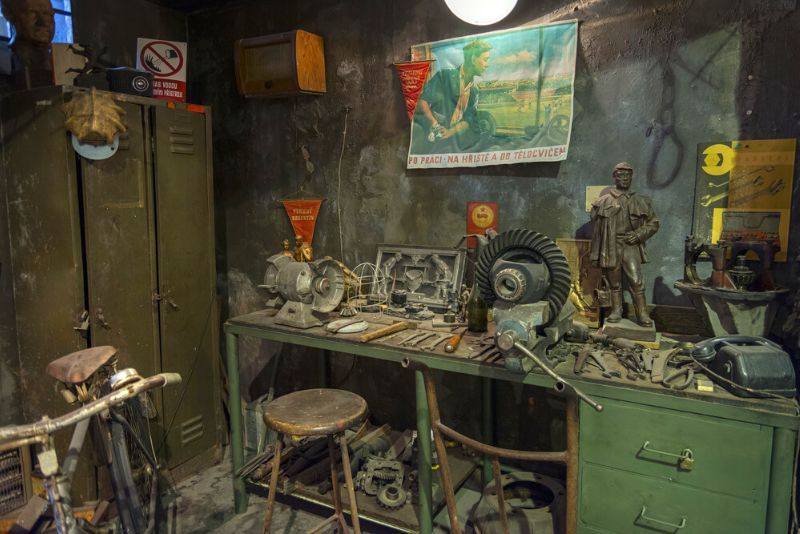
If you want the most detailed glimpse into life under totalitarian rule, head to Prague’s Museum of Communism.
Itinerary
As you wander the museum’s many rooms at your own pace, you’ll find yourself transported back in time to post-war Czechoslovakia when the communist party ruled the nation.
Read propaganda spread across the newspapers and learn about censorship across the land that included music, and film.
Be startled by the repression of anyone opposing the rules of the communist party by the secret police (StB). Telephone tapping, home searches and surveillance were all standard practices for this authority.
However, at times they went as far as torturing and drugging their victims into confessing during the height of the totalitarian rule.
See what went on inside a political labor camp — of which there were 18 scattered across former Czechoslovakia — including mining uranium.
There are a plethora of artifacts on display from this time period scattered throughout the museum, as well as videos and photos to enable you to get a feel for the daily life of a Czech resident.
Communist history tour in Trabant 601
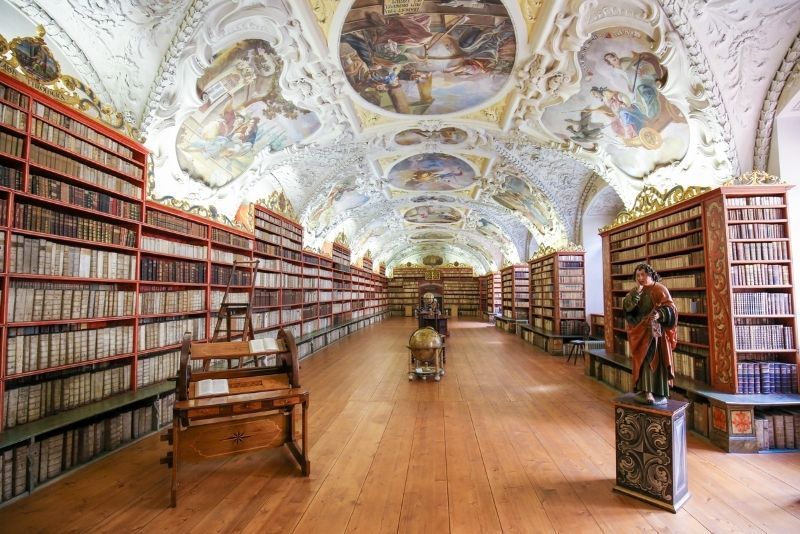
Hop into a Trabant 601 — the symbol of the Eastern Bloc during the communist era — and explore the significant landmarks during that timeframe.
Itinerary
Settling yourself inside this classic car that was built around 1964, your tour guide will rev the engine and steer you through the city streets.
Discover the propaganda spread by the totalitarian regime at the Strahov Stadium — the largest sports arena in the world. Here, the party held several Spartakiad gymnastic events.
Drive out to the Strahov Monastery, which was closed down during the communist reign. Many of its resident monks were imprisoned and the building itself suffered great damage until its reconstruction after the Velvet Revolution.
From this perch on Petřín Hill, you’ll gain an unparalleled view over Prague’s Old Town, which is home to many reminders of Soviet history.
Post-communist art and architecture tour in Prague
With a local guide by your side, you’ll explore the city’s expressions of freedom in an art tour of post-communist Prague.
Itinerary
While creativity was hindered during the communist reign, the totalitarian party did not manage to quash its residents' talents forever.
After the Velvet Revolution led to the downfall of communism, many buildings, sculptures and pieces of street art popped up across the city.
You’ll begin at the abnormally curved building on Jiráskovo náměstí — home to the renowned Dancing House Hotel. Pass by the 20th-century Lucerna Palace — now used as an entertainment hub — on your way to Ujezd.
Here, you’ll see the emotional yet beautiful monument dedicated to Prague’s citizens who were killed or imprisoned during the harsh regime.
This memorial takes the shape of seven bronze statues, all of which have been severed, as a representation of how the city was affected during the post-war period.
Head to the creative area of Mala Strana, awash with colorful street art on every corner. Giggle at David Černý’s controversial water sculpture, featuring two men urinating.
Finally, wander down the quaint Husova Street and admire its charming atmosphere, and historic buildings.
Which places are visited?
Victims of Communism Memorial
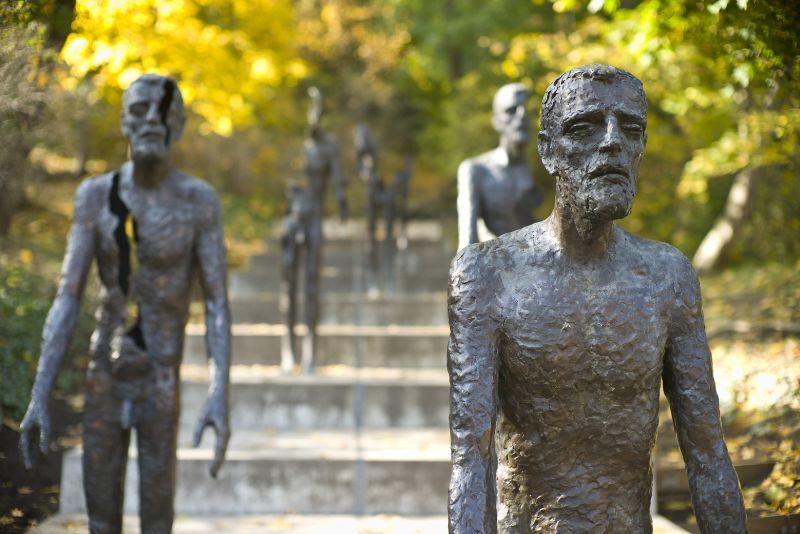
The Victims of Communism Memorial in Prague is a poignant reminder of the millions of innocent people who suffered or lost their lives under the communist regime.
Built in 2002 and created by the architect Olbram Zoubek, this memorial serves as a place to honor the memory of those who were persecuted, and oppressed.
By visiting this important monument, you can pay their respects and reflect on the harrowing tales of these individuals who braved unimaginable hardships while never giving up hope.
The seven bronze models appear degraded — some are missing limbs while others are torn open — which is a symbol of the impact of the totalitarian reign. In 2003, two bomb blasts damaged one of the statues, the evidence of which can still be seen today.
Wenceslas Square
The Velvet Revolution of 1989 was a monumental moment in Prague’s history, and Wenceslas Square played a major role in this revolutionary event.
Students and city dwellers gathered peacefully in the square to oppose the communist government, and its ban on freedom.
While riot police suppressed this demonstration, it was the first spark in a number of events that led to the total collapse of the government 11 days later.
Led by iconic figures, such as Václav Havel and Alexander Dubček, hundreds of thousands of people rallied together to peacefully bring about sweeping democratic reforms.
Strahov Monastery
Strahov Monastery was originally built in the 12th century, but just 100 years later fell victim to significant fire damage.
Lovingly rebuilt, the monastery stood firm throughout the Hussite Wars and the Thirty Years’ War, despite several attacks. Strahov is famed for its unique frescoes, collection of medieval maps and grand libraries.
However, during the communist era, all monasteries — including Strahov Monastery — across the nation were closed in order to weaken the spirit of the church.
To further curb the power of catholicism in former Czechoslovakia, the state imprisoned over 2,300 monks.
When the Iron Curtain fell in 1989, the monastery was reclaimed by the Presbyterian monks who set about restoring and reopening their place of worship to the public.
How much do communism tours in Prague cost?
The most budget-friendly way to see behind the Iron Curtain is by exploring its Museum of Communism, which costs around €15 per person.
However, if you want a more formal communism tour in Prague, you can participate in a walking excursion of the city center with a guide.
They’ll point out landmarks that were connected with the communist regime and escort you to a nuclear bunker for between €30, and €40 each.
You’ll pay around €50 per person for a Prague communism tour that takes place in a classic Trabant 601. Expect to pay the same amount for a post-communism art and architecture tour around Prague.
Alternatively, pay €60 each to hop on two wheels and tour Prague on an E-bike.
What is included?
Communism tours in Prague include a knowledgeable guide who will lead you around several infamous landmarks, known for their association with the totalitarian reign.
They’ll help you to understand the impact this regime had on the residents of former Czechoslovakia as they fill you in on each monument’s history.
Where does it start?
Prague communism tours begin at a variety of easy-to-reach destinations across the city, including well-known monuments, such as the Powder Tower. Alternatively, some excursions start at the tour operator’s office in the city center.
You can view the meeting point of each tour before booking so that you can select one that fits in well with your itinerary. This gives you plenty of time to plan your route before you leave for your vacation.
Prague has an extensive public transportation network, meaning you’ll find it easy to make your way through the city to your meeting point.
How long does it last?
Generally, communism tours in Prague last between 2.5 and 3 hours.
In this time period, you’ll be able to discover a significant number of the city’s communist landmarks and learn about the role they played during the rise, and fall of the repressive regime.
If you’re pressed for time, opt for a Prague communist tour that whizzes around Prague in a Trabant 601 and lasts approximately 1.5 hours.
Alternatively, take yourself on a self-guided tour of the city’s Museum of Communism and be in total control of your timing.
When is the best time for a communism tour in Prague?
You can participate in a communism tour in Prague at any time of day. These tours are a great way of gaining an insight into Prague’s colorful past.
As communism played such a large part in shaping the city you see today, you should consider booking your excursion for the first or second day of your trip.
Travel tips
- A communism tour in Prague can be a harrowing experience, as you learn about the hardships and suffering of Prague’s residents. If you’re a sensitive or emotional person, you may wish to bring a pack of tissues on your excursion.
- Prague can be rainy throughout the year, so pack an umbrella just in case.
- Most Iron Curtain tours in Prague take place on foot, so ensure you’re wearing appropriate footwear.
